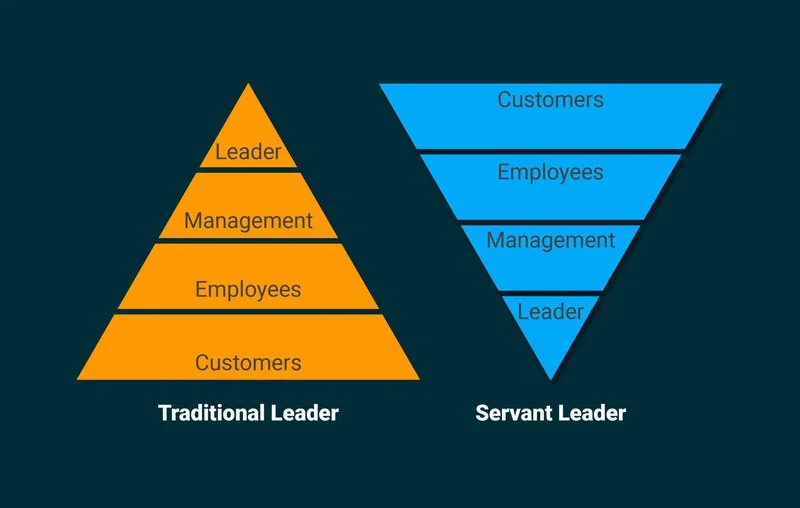Edition: October 8th, 2021
Curated by the Knowledge Team of ICS Career GPS

- Excerpts from article by Krishna Athal, published on Entrepreneur.com
We often hear of transformative leadership, which sees people’s needs as a means to an end. Transformative leadership believes that fulfilling people’s needs will bring about a positive change in them.
However, servant leadership is a style of leadership that has been gaining popularity because it sees people’s needs as the end in itself.
It does not expect any outcome other than simply fulling the needs of people.
It is implied that serving people will only do well for them.
Not just a theoretical concept
Servant leadership is not only found in theory anymore. Organisations around the world are directing their focus towards helping people grow and focus.
Furthermore, the motivation of those in leadership positions is aligned to serve others, not just to lead, as almost every stakeholder in an institution has access to all information with the click of a button. The days when leadership and data were preserved for the few elites are bygone.
Many researchers have also been successful in almost accurately predicting the impact and benefits of the servant leadership approach when applied. There findings have made it easier to observe and evaluate how effective servant leadership leads to specific desired outcomes.
Benefits of servant leadership
- Servant leaders empower their subordinates to become leaders in their own units.
- The competitive future belongs to those leaders and organisations, which will have everyone on board empowered to identify and resolve the organisation’s problems.
- Servant leadership awards organisational citizenship — this means that for employees to show altruism and go beyond their call of duty, the servant leader must empower each of them to feel like a significant member.
- Contextual organisational goals can only be achieved with a united team of empowered staff and an environment that focuses on the staff members’ holistic welfare.
- In this competitive 21st century, the institutions that will survive are those willing to embrace change and have servant leadership at the core of their organisational structure.
- In contrast, labour unions, past management and leadership styles based on command, prestige and authority will find it increasingly difficult to survive.
How servant leadership will change the world
Promoters and practitioners of servant leadership suggest that once servant leadership is internalised and lived to its tenets, the fruits of successful servant leadership will manifest in every aspect of society. Some of these are:
- Everyone will listen and be listened to; hence there will be little or no misunderstandings.
- This will help build a united, cohesive community that confronts common challenges in unison.
- Society will be more empathetic, resulting in greater commitment to the growth of every member.
- Organisations will be more responsive to the needs of those who work for them and members of the society in which they operate.
- It will boost corporate social responsibility more than ever.
- People will resort to persuasion and dialogue to resolve conflicts and not power and authority that could easily create chaos and confusion.
- People will develop a sense of altruism.
- Employees will go beyond the call of duty, which will benefit their organisation and even the society.
…
(Disclaimer: The opinions expressed in the article mentioned above are those of the author(s). They do not purport to reflect the opinions or views of ICS Career GPS or its staff.)
Like this post? For more such helpful articles, click on the button below and subscribe FREE to our blog.




